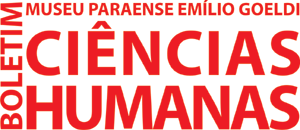Abstract
In this article, we examine the family trajectories of three rural leaders in the Mearim Valley, which illustrate the main forms of land access by Maranhão’s peasantry over the past 150 years. An analysis of these trajectories, captured as allegories, shows how the contingencies experienced by this peasantry, despite unfavorable interactions in the social structure and under the legal apparatus of the Brazilian State, manage different levels of agency to ensure their social reproduction while remaining on the land. In the three cases studied, the collective action processes and political articulation performed by the interviewees in response to these contingencies represent discontinuities between generations, with different consequences for family trajectories. In only one case, the practices and discourses that expanded the family group's agrarian base were maintained, in contrast to apparent stagnation and contraction observed in the other cases. The analysis indicates that the range of possibilities for contemporary rural peasants takes into account relevant interactions of the family unit with the formal land market, as well as socio-political relations established beyond kinship.
Keywords
Collective action; Life histories; Kinship relations; Family trajectories

 Thumbnail
Thumbnail
 Thumbnail
Thumbnail
 Thumbnail
Thumbnail
 Thumbnail
Thumbnail
 Mapa:
Mapa: 

